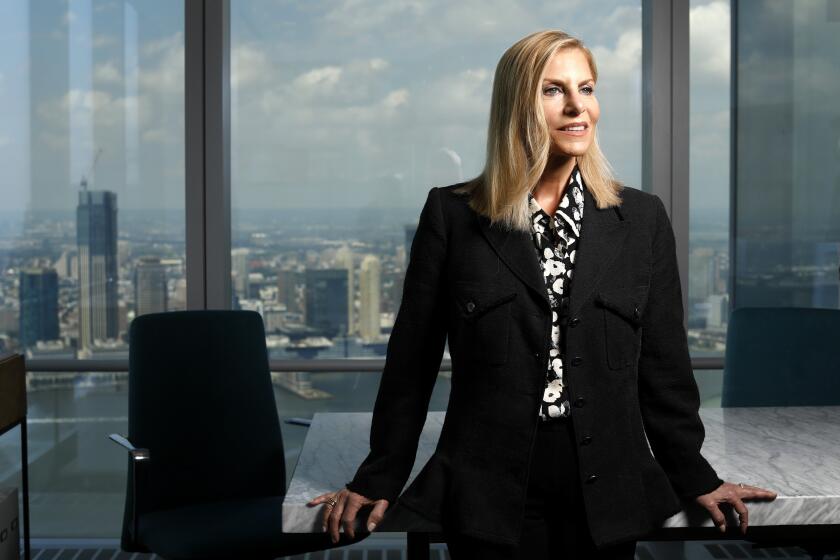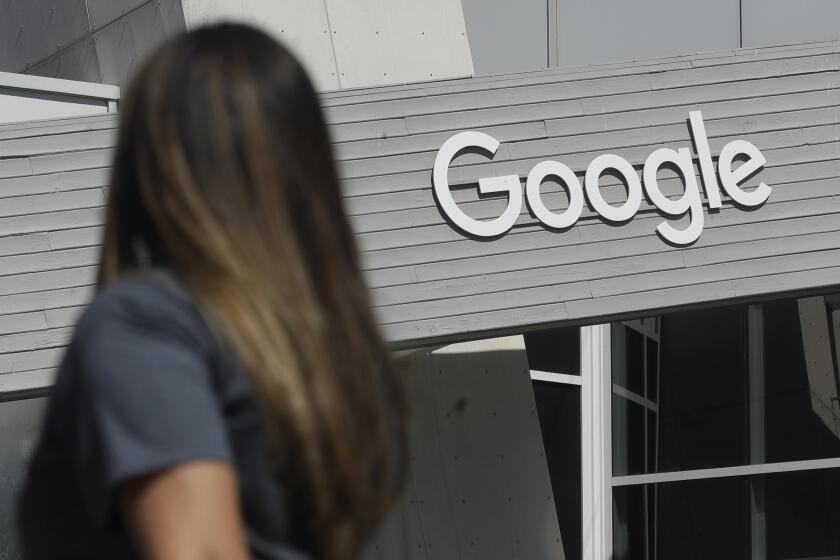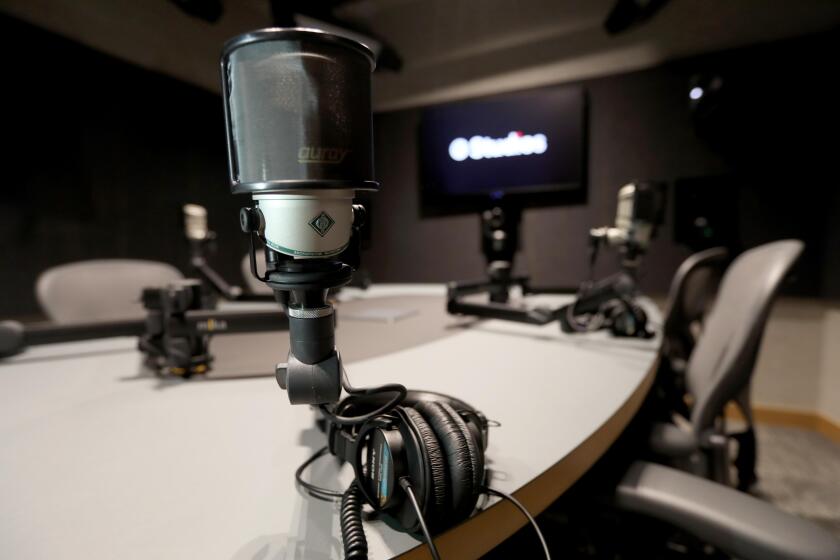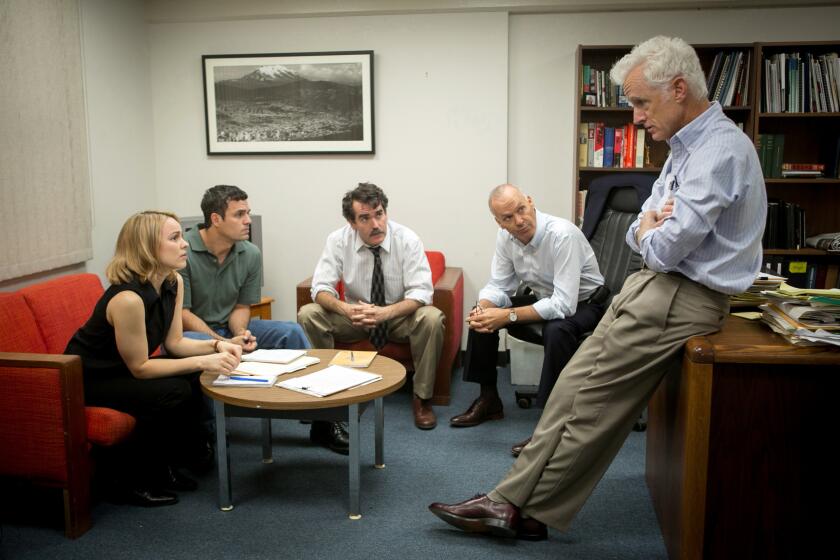Spotify reduces staff by 6%, Chief Content Officer Dawn Ostroff to leave
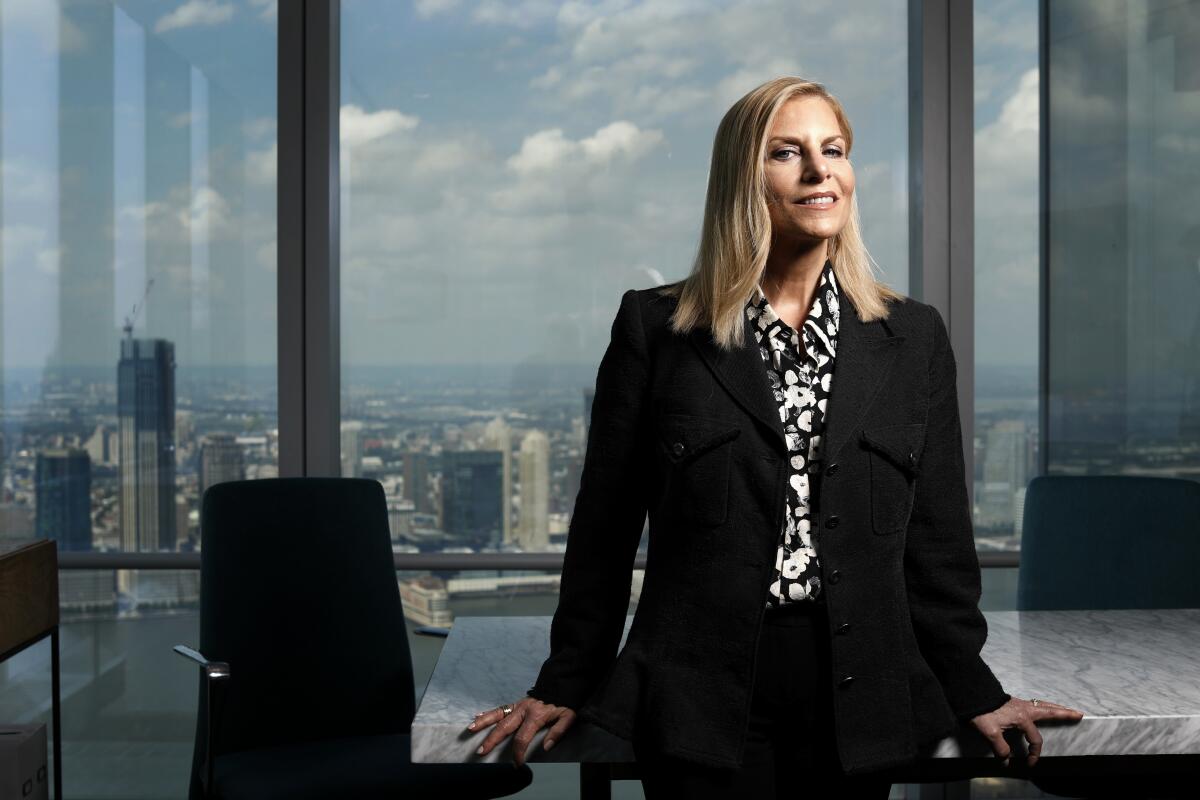
Spotify on Monday said it is cutting 6% of its staff, following a wave of layoffs at other tech and entertainment businesses as they adjust to a challenging economic environment.
As part of the move, the Swedish music-streaming giant said that Chief Content Officer and Advertising Business Officer Dawn Ostroff is leaving.
A key architect of Spotify’s podcast strategy, Ostroff joined the company as it made large audio and advertising investments, acquiring production companies and making podcast deals with newsmakers and celebrities.
But the company’s aggressive investments in the podcast space have drawn more scrutiny amid a cooling economy.
Spotify CEO Daniel Ek said the layoffs were reflective of Spotify’s need to be more efficient.
“We still spend far too much time syncing on slightly different strategies, which slows us down,” Ek wrote in a blog post on Monday. “And in a challenging economic environment, efficiency takes on greater importance. So, in an effort to drive more efficiency, control costs, and speed up decision-making, I have decided to restructure our organization.”
The cuts will impact roughly 600 people, according to a person close to Spotify who declined to be named.
Julie McNamara, head of talk studios, and Max Cutler, head of talk creator content and partnerships, will remain in their roles, and the company will continue to invest in original and exclusive podcasts, the person said.
Last year, the company scrapped 11 podcasts and laid off nearly 40 people from its podcasting staff.
Dawn Ostroff, Spotify’s chief content officer, says she plans on making hundreds of original podcast series next year as part of a strategy to expand the streaming platform’s podcast offerings. The company aims to have 20% of the listening on its service be non-music.
Ostroff joined Spotify in 2018 and oversaw a rapid expansion of the company’s foray into podcasting with shows featuring Kim Kardashian, former President Barack Obama and Michelle Obama, and Prince Harry and his wife, the former Meghan Markle. Among its most popular podcasts is “The Joe Rogan Experience,” which has an exclusive licensing deal on the platform.
In the transition, Spotify said Ostroff will be a senior advisor. She was not available for an interview.
Ostroff was previously president of Condé Nast Entertainment, building the company’s digital video business and overseeing its film and TV operations. Her long career in the entertainment industry has also included stints at Disney, Fox, Lifetime, UPN and the CW Network.
Alex Norström, Spotify’s chief business officer, will assume responsibility for content, advertising and licensing. Ek said he will be centralizing the majority of engineering and product work under Norström and Chief Product Officer Gustav Söderström.
“Like many other leaders, I hoped to sustain the strong tailwinds from the pandemic and believed that our broad global business and lower risk to the impact of a slowdown in ads would insulate us,” Ek wrote. “In hindsight, I was too ambitious in investing ahead of our revenue growth.”
Spotify has invested heavily in tools that make it easier for users to upload their podcasts onto the platform. Last year, Ek said Spotify worked with 11 million creators.
“Because the podcast strategy was pretty expensive … they’re probably looking at different types of content streams that are much more cost-effective,” said Ray Wang, principal analyst at Palo Alto-based Constellation Research.
The company’s restructuring comes as large tech companies including Meta, Google and Amazon have been laying off thousands of workers. Last week alone, there were 21,000 job reductions announced in the tech industry, Wang said.
“Every single tech company is trying to cull their employees,” he added. “It’s like management du jour, everyone is going and laying off 5 to 10% of their workers.”
The pandemic was a great time to be a tech worker, as business boomed, working remotely became standard and perks flowed like water. Now, things look less certain.
Over the last few years, Spotify has expanded its presence in audiobooks and live audio.
In 2021, the company opened a new L.A. office with a cluster of podcast studios known as Pod City. Spotify declined to say how many L.A. employees would be affected by the layoffs.
But, after a period of rapid growth and expansion during the pandemic, the podcast industry has begun to contract.
The number of new podcasts dropped to 219,805 in 2022, compared to 729,495 podcasts in 2021, according to podcast search engine and database Listen Notes.
Ben Davis, a partner in digital media at talent agency WME, said he started seeing a slowdown in podcast deals starting in the fourth quarter, reflecting broader economic trends.
“You were just seeing a slowing down or people tending to be more risk averse when it comes to the guarantees that they were willing to make,” Davis said. “So a buyer might say, ‘Hey, I can’t write a big guarantee, but we’ll give you a larger share of the upside or we can’t do a big exclusive deal right now.’”
He said, however, that podcasts remain a popular form of entertainment and that the industry will rebound.
As Spotify grows its podcast empire, it is continuing to lean into podcasts by prominent newsmakers, influencers and filmmakers such as Jordan Peele.
More to Read
Inside the business of entertainment
The Wide Shot brings you news, analysis and insights on everything from streaming wars to production — and what it all means for the future.
You may occasionally receive promotional content from the Los Angeles Times.
